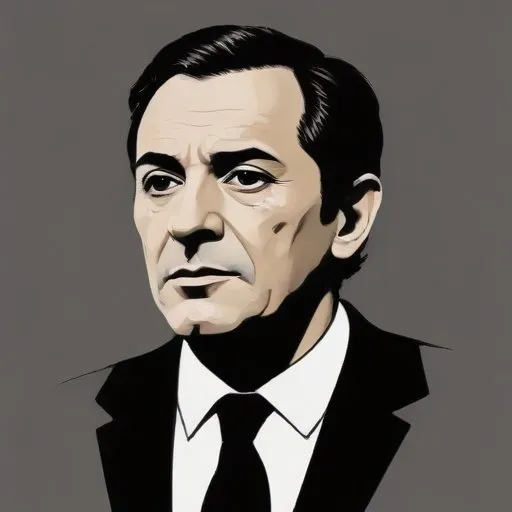
A renowned filmmaker celebrated for his poignant and visually stunning explorations of Spanish culture, politics, and identity through cinematic masterpieces like "Carmen" and "Flamenco".
Carlos Saura, the renowned Spanish film director, photographer, and writer, is celebrated for his groundbreaking contributions to the world of cinema. With a career spanning over half a century, Saura's films have won numerous international awards, cementing his position alongside Luis Buñuel and Pedro Almodóvar as one of Spain's greatest filmmakers.
Saura's journey in filmmaking began in 1955, when he started creating documentary shorts. His first feature-length film, Los Golfos, premiered at the Cannes Film Festival in 1960, marking the beginning of his rise to international prominence. Initially associated with the neorealist movement, Saura soon shifted his focus to films rich in metaphors and symbolism, cleverly evading Spanish censors.
In 1966, Saura's film The Hunt won the Silver Bear at the Berlin International Film Festival, propelling him into the international spotlight. This milestone was followed by a slew of critically acclaimed films, including Cousin Angelica (1973) and Cra Cuervos (1975), which earned Special Jury Awards at Cannes. His film Mama Turns 100 (1979) received an Academy Award nomination for Best Foreign Language Film.
The 1980s saw Saura create his iconic Flamenco trilogy, comprising Blood Wedding, Carmen, and El amor brujo. This innovative fusion of dramatic content and flamenco dance forms redefined the boundaries of cinematic storytelling. Carmen (1983) earned Saura his second Academy Award nomination for Best Foreign Language Film, followed by Tango (1998).
Saura's films are distinguished by their sophisticated expression of time and space, seamlessly merging reality with fantasy, past with present, and memory with hallucination. His work has left an indelible mark on the world of cinema, inspiring generations of filmmakers and artists.
Carlos Saura was born on January 4, 1932, in Huesca, Aragon, Spain. His father, Antonio Saura Pacheco, was a lawyer, and his mother, Fermina Juliana González Verge, was a housewife. Saura's early life was marked by a deep love for photography, which would later influence his filmmaking style.
Carlos Saura's remarkable career serves as a testament to his innovative spirit, artistic vision, and dedication to the craft of filmmaking. As a master of Spanish cinema, his legacy continues to inspire and influence filmmakers around the world.

Born in 1900
A surrealist filmmaker who explored the human psyche through dreamlike, often unsettling narratives, leaving an indelible mark on world cinema.
Born in 1920
Visionary filmmaker behind surreal, poetic, and deeply personal cinematic masterpieces that blur the lines between reality and fantasy.
Born in 1912
A pioneering filmmaker who explored the human condition through visually stunning and psychologically complex movies, often focusing on alienation and social isolation.
Born in 1901
A renowned filmmaker and actor, known for directing poignant, neorealist classics like "Bicycle Thieves" and "Umberto D.", which still influence world cinema today.
93 Years Old
A pioneering filmmaker of the French New Wave, known for directing iconic films like "Jules and Jim" and "The 400 Blows", which redefined cinematic storytelling.
94 Years Old
A pioneer of French New Wave cinema, known for experimental and provocative films that challenged traditional narrative structures and explored themes of politics, philosophy, and social commentary.
82 Years Old
Acclaimed filmmaker behind gritty, intense, and visually stunning movies that often explore themes of redemption, faith, and the human condition, with a distinctive directing style that blends violence and artistry.
86 Years Old
Academy Award-winning filmmaker behind epic movies like The Godfather and Apocalypse Now, known for his groundbreaking storytelling and direction.